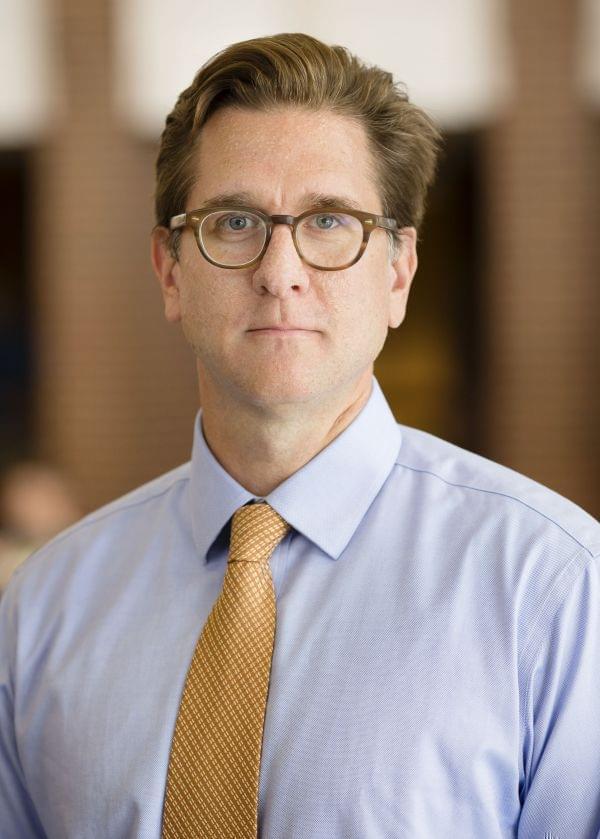Michigan Archives

Travis McDade from the University of Illinois College of Law University of Illinois College of Law
Dr. John Tanton has the sort of CV even an Urbana resident could love: founder of his local chapters of the Sierra Club and Planned Parenthood, the New York Times noted he has spent most of his adult life in rural Michigan, chopping wood, keeping bees, and growing kale. In 1979, he founded the Federation of American Immigration Reform which, an early board member said, wanted to bring “strong representation from people in groups of liberal, progressive disposition,” and attracted the support of no less than Eugene McCarthy. But then things, as they sometimes do, took a turn.
As the 1980s wore on, Tanton began to fear that one immigrant group, in particular, was failing to assimilate, failing to learn English, and being overly robust in its production of children. After he stated these opinions, his support on the political left decreased and was replaced by support from the political right.
Whatever this part-reactionary, part-radical beekeeper is politically, he has definitely lived an interesting life. So in 2010, the University of Michigan accepted 25 boxes worth of archival material from Tanton, fourteen of which were made available as soon as processed, and the rest kept sealed until 2035.
But immigration attorney Hassan Ahmad could not stand the suspense. He wanted those other boxes now, and, after asking nicely and being rebuffed, filed suit claiming they were subject to Michigan’s Freedom of Information law.
Ahmad also spoke to the press a lot, suggesting that certain outside groups with influence were forcing Michigan’s hand. And, I quote: “The University hasn’t even produced a copy of the mysterious gift agreement with Tanton…The secrecy is alarming.”
In fact, there is nothing mysterious, alarming, or secret about this at all – unless you consider the daily life of publicly funded archivists to be those things. In which case, get some help. Institutions in the information preservation business, including one right here in Champaign-Urbana, routinely contract with donors to limit access in exactly this way. In fact, Tanton’s agreement is fairly vanilla by the standards of archives. Just for instance, late Justice Harry Blackmun stipulated that his 1,500 or so boxes of archival material only become available five years after his death; then, later, his family added a special dispensation, giving Linda Greenhouse, a bit of a head start over everyone else. Archives routinely work with donors and their families to make the arrangements that serve the best longterm interests of both the records they’re making available, and the institution – this Tanton agreement is not out of line with current best practices.
Michigan’s common sense argument that opening this restricted material in advance of the stated time would be double bad – a breach of the gift agreement in the present, and chilling the likelihood of donations in the future – was bought by a lower court. But then the Michigan Court of Appeals took up the matter and decided it could best circumvent the spirit of the FOIA law by torturing the English language until it said what the court wanted it to say.
For instance, in attempting to define of the word “official,” the Court of Appeals found the most pertinent definition to be the word “authoritative.” But authoritative is not a definition of “official,” it’s a synonym. A synonym whose own definition contains the word, you guessed, it, official.
But at least defining a word in a circle is better than defining it the opposite of how it was meant.
The University’s bylaws contains the phrase “collecting, preserving, and making available to students.” The Court of Appeals said the meaning of and may be flexible depending upon context. And then offering none, decided to treat this “and” as an “or” for no other reason other than that it served their purpose to do so.
Anyway, Ahmad won and, depending upon what another court decides is reasonable, Michigan might have to break its agreement to Tanton – and, presumably, anyone else it made a similar bargain with – and open the boxes early.
Archives, and the people who rely on these most important institutions, which is pretty much all of us, in one way or another, should fear this decision. An inability for public institutions to make good-faith agreements with potential donors for reasonable limitations on access would be a loss – and donors might be more apt to give their materials to private institutions, not subject to FOIA, or cull from them anything that might be deemed controversial in the near term. Both of these are ultimately limiting to, not freeing of, information.

